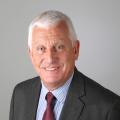RAPID access 'pop up' hospital clinics treating hundreds of patients each day could be established in shopping centres and possibly other venues.
The seven-days-a-week scheme is being worked up by University Hospitals Dorset, the trust which runs Bournemouth and Poole hospitals.
Extensive space is being considered for use at the Dolphin Centre in Poole and the Sovereign Centre by NHS bosses as part of a 'thinking differently' programme as the service gets to grips with huge backlog of patients on waiting lists, post-Covid.
Around 45,000 people are waiting for treatment, with 5,500 having been on a list for more than a year.
UHD chief operating officer, Mark Mould, told the Echo the finalising of the first clinic was "very close."
The initiative would also fit into the town centre revitalisation agenda by bringing hundreds of people into town centres, some of who may stay to shop or have a coffee or a meal and meet friends and family.
The 'high-flow' clinics could treat patients across a number of specialties at once, including breast screening, opthamology and orthopaedics, in a lane system.
Mr Mould said: “What we are looking at is, can we operate high volume clinics with the consultants and clinicians doing the bits that only they can do?
"Everybody else supports the role of the clinician. The consultant only does the bit that they absolutely need to do.”
It would be a different type of patient experience and one that create its own challenges. It may seem much more businesslike and formal.
Mr Mould added: "We will need to clear with patients about what to expect and also understanding about the big picture benefits, especially speeding up the process of reducing those waiting lists.”
“A patient goes to station one and something is done to them, the same at stations two and three and at stage four they see the clinician.”
"It may mean two or three times more people can go through that clinic than would otherwise be the case.
"We took several consultants round the vaccination hub at the BIC recently to see how we could deliver services at such a scale.
"We said if you had this sort of space available could we do things very differently. The big message coming back is that there is a big opportunity here and that is exciting."
Mr Mould said shopping centres like the Dolphin have good disabled access, parking and public transport links as well as all the other retail facilities.
The top floor of Beales - half the size of a football pitch is being considered with some equipment being transferred from unused Nightingale hospitals.
"Many of our patients have hardly been out in the last 14 months, so something like this could be part of their rehabilitation.
"There is gain for everyone here. There's more footfall and actually some people may feel safer coming to a pop up clinic rather than into hospital. We really are positive the public will come."
The project is one part of a range of changes.
Another innovation is ‘digital validation’ - asking patients if anything has changed while they have been waiting. Have they got better, have they got worse, have they been treated elsewhere?
Mr Mould admitted: “Some people feel we have forgotten about them because they have been waiting so long. We acknowledge there is a lot of anxiety being on a waiting list."
If a patient doesn’t have access to digital technology they will receive a letter.
“People do get better or get treated elsewhere and having that information means we can switch our focus more quickly to patients who still need treatment. Even a small change in using our resources better has a massive impact on what we do day to day.”
Mr Mould said the pandemic has speeded up change within the NHS.
There was no alternative to introducing virtual consultations for example.
“We will recover faster by doing all this and we need to get everyone on board across all disciplines."
UHD chief executive, Debbie Fleming said: “Over the last year we very reluctantly had to cancel many operations and procedures for our outpatients because of Covid 19. We needed to do this to care for our emergency patients and to help protect our outpatients and staff from infection.
“Now with the lowering of infection rates in our region and the drop in numbers of Covid patients across our hospitals, our priority is to help all those who are still waiting.
“I know how much of an effect that these delays can have on each and every patient and that is why I am so glad that we are now in a position to move things forward.
"I would like to thank all those who are waiting for treatment for their patience, and would like to assure them that we are doing everything possible to move things on swiftly”









Comments: Our rules
We want our comments to be a lively and valuable part of our community - a place where readers can debate and engage with the most important local issues. The ability to comment on our stories is a privilege, not a right, however, and that privilege may be withdrawn if it is abused or misused.
Please report any comments that break our rules.
Read the rules hereLast Updated:
Report this comment Cancel